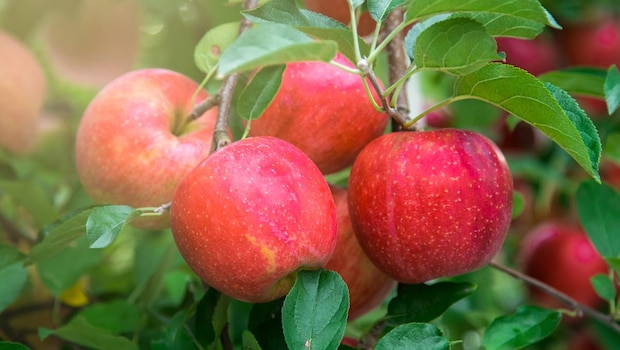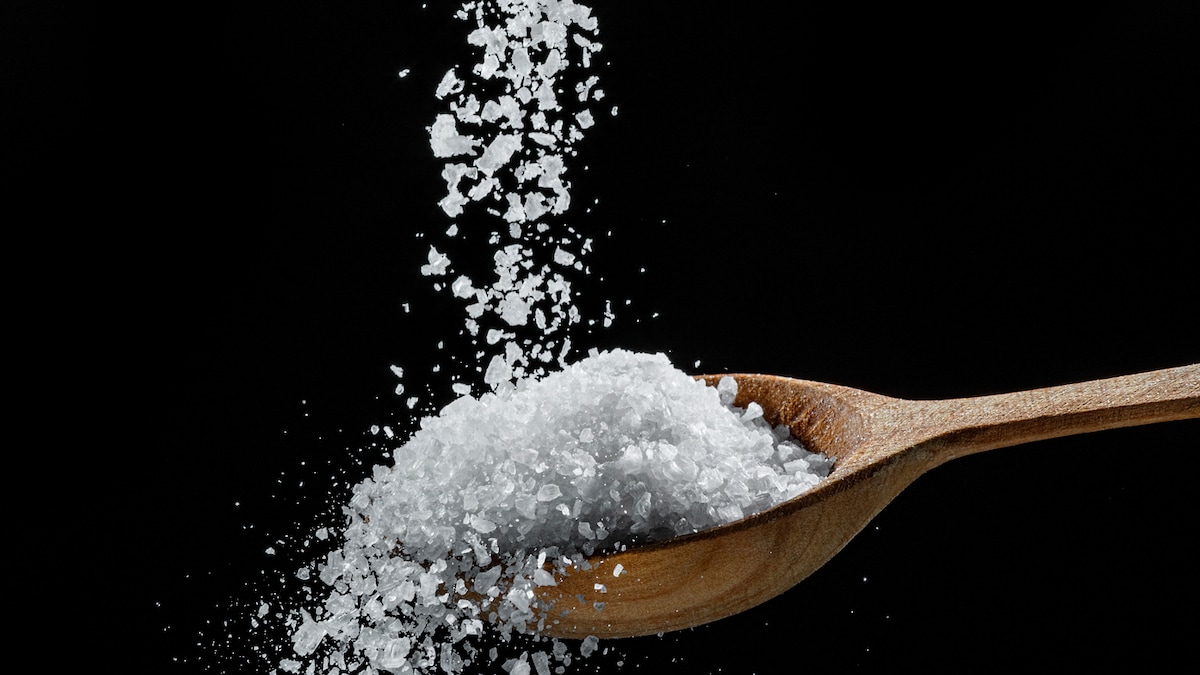Have you ever taken a bite of your favorite dish and thought, “Hmm, maybe a pinch of salt would make it better”? Well, you’re not alone. For many of us, the final pinch of salt seems like an easy way to enhance the flavor of our meals. And we don’t just do it with our daily meals, but also with our fruits and salads. But is it really a good practice to add salt to our meals? It makes our food taste better, but does it harm our body more than we think? If you have this and other sodium-related questions in mind, then you’ve come to the right place! Let’s find out if this habit helps, improves, or worsens your body.
Read also: 15 Amazing Benefits of Rock Salt (Sendha Namak) for Skin, Hair and Overall Health
Photo credit: iStock
What happens when you eat too much salt?
If you consume too much salt on a daily basis, this can have several long-term effects on your body. The most common side effect is increased blood pressure, when blood is pushed hard against the walls of the arteries. Other common symptoms include the development of multiple sclerosis, heart disease, headaches, enlargement of muscle tissue, organ damage, kidney stones, osteoporosis, etc. A very obvious side effect of excessive salt consumption is water retention in the body, which can lead to swelling in some parts of the body.
Should you add salt to your meals?
Yes, you can. According to nutritionist Amita Gadre (@amitagadre), adding salt to your meals would not cause any problems. However, it is important to make sure that you do not consume foods that are too flavorful or salty to control your total sodium intake for the day. Many times, we add salt while cooking ingredients to speed up the process and prevent them from burning. For example: while cooking onionExpert says it is okay to add salt to foods to enhance their flavor.
How much salt is acceptable to consume daily?
According to the expert, it is important to be mindful of your salt intake throughout the day. Make sure you only consume one teaspoon (5 grams) of salt a day and no more. This is because you also get sodium from other foods and not just from the extra salt added to meals.
Watch the full video below:
How to reduce daily salt intake?
You can easily reduce your salt intake by changing your daily habits. Follow these simple tips to control your salt intake.
1. Avoid processed foods
Ready-to-eat packaged snacks available in the market today have high levels of salt. These food products have unhealthy levels of salt which make them tastier but are immensely harmful to us. Instead of buying salty snacks, try chewing on healthier options like fruits, nuts and seeds.
2. Limit pickles, papads and chutneys
Pickles, papads and chutneys enhance the flavour of food, but they are high in salt. If you consume them in your daily meals, keep the salt levels in your food low and compensate for it with condiments.
3. Cooking at home
Not only will it be economical, but cooking at home can help you control your salt intake. Instead of using salt directly, you can use herbs and seasonings to make them more nutritious and delicious. Try replacing salt with seasonings the next time you cook.

Apples
Photo credit: iStock
4. Eat fruits and vegetables with less sodium
Another way to reduce salt intake is to eat fruits and vegetables that are low in sodium. Fruits and vegetables such as apples, berries, orangesMangoes, broccoli, sweet potatoes, okra, etc. should be added to your daily diet as they have lower levels of sodium.
5. Read food labels
Before buying food, read labels carefully. Make sure you buy and consume only foods with low sodium levels to control your daily salt intake. Start by reducing salt in your daily foods and gradually your taste buds will become immune to this change.
Read also: Is it healthy to consume table salt? Find it here
Disclaimer:
The information contained in this post is for general information purposes only. We make no representations or warranties of any kind, express or implied, about the completeness, accuracy, reliability, suitability or availability with respect to the website or the information, products, services, or related graphics contained on the post for any purpose.
We respect the intellectual property rights of content creators. If you are the owner of any material featured on our website and have concerns about its use, please contact us. We are committed to addressing any copyright issues promptly and will remove any material within 2 days of receiving a request from the rightful owner.

